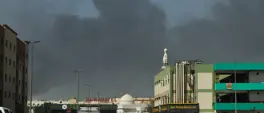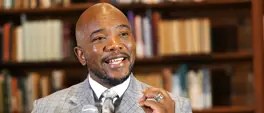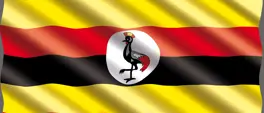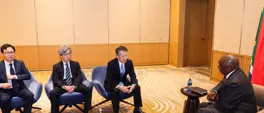Extreme climate hits under-resourced nations: Africa's struggle for a just transition
Kopano Mohlala
13 June 2025 | 8:15Sponsored by RMB CIB
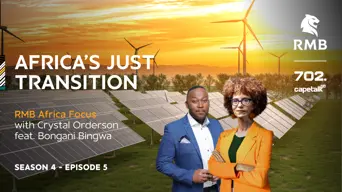
Acclaimed journalist Crystal Orderson, who specialises in economic and political affairs concerning the African continent, joins 702's Bongani Bingwa to discuss the impact of extreme weather on Africa's economically vulnerable nations and the fight for a just energy transition.
Listen below:
“We’re seeing extreme weather events that are devastating economies. Just in Africa, the International Federation of Red Cross estimates around 8 million people have been displaced due to climate impacts.”
- Crystal Orderson, Journalist
The cost is not merely human—it’s profoundly economic. The World Meteorological Organisation’s State of the Climate Report reveals that African nations are losing between 2% and 5% of GDP due to climate-related events. In Sub-Saharan Africa, governments are allocating up to 9% of national budgets towards disaster response.
“This is the reality. It’s affecting how we live, how we work, and ultimately how we grow,”
- Crystal Orderson, Journalist
Africa’s path toward clean, inclusive energy development relies on substantial financial support. However, capital is scarce. While development finance institutions, such as those from Germany and Canada, have long played a role, the global financing landscape is evolving.
“Africa needs to quadruple its climate financing, and that’s why President Ramaphosa is engaging the G7—to make the case for African support.”
- Crystal Orderson, Journalist
There is increasing momentum behind green finance. The African Development Bank has launched green shares to encourage investments in environmentally friendly projects such as alternative energy, carbon reduction, and recycling.
“The African Development Bank estimates Africa needs $1.3 trillion in climate financing every year until 2030 to meet emission targets,”
- Crystal Orderson, Journalist
Orderson spoke to RMB's Sustainable Finance Transactor, Beth Rivett-Carnac. To close the gap, private capital must play a larger role, emphasising the shift towards sustainable finance, says Rivett-Carnac:
“Much of the historical financing has come from DFIs (Development Finance Institutions) with limited capital. We need to grow private sector participation in the financing opportunity.”
- Beth Rivett-Carnac, RMB
According to Rivett-Carnac, sustainable finance provides clear frameworks, offering comfort to global investors while ensuring transparency in how funds are used.
"It offers a good transmission mechanism for capital to flow from the global North to the global South."
- Beth Rivett-Carnac, RMB
Many African countries are already over-indebted, and traditional loan-based solutions can worsen the problem. Sustainable finance offers alternatives that prioritise growth without deepening the debt crisis.
“You can’t talk about a just energy transition if it doesn’t enable inclusive and sustainable growth,”
- Bongani Bingwa, Presenter on 702 Breakfast with Bongani Bingwa
The RMB Africa Focus Series continues next week. You can still catch up on episodes you've missed on the RMB Africa Focus Series page on Primedia Plus.
Get the whole picture 💡
Take a look at the topic timeline for all related articles.










